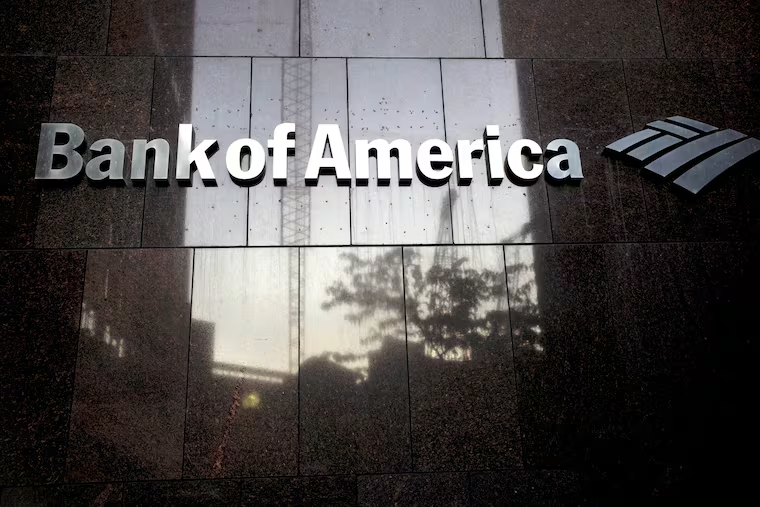Do these stock market-listed firms from the Philly area deserve forgivable SBA loans? They say yes.
These firms say they should qualify for aid, so long as they meet the requirement to use the money to keep their people working.

The outcry when more than 100 companies listed on a stock market got forgivable Paycheck Protection Program bank loans through the U.S. Small Business Administration, while hundreds of thousands of smaller firms so far have not, has pushed firms such as AutoNation, Ruth’s Chris Steak House and Yardley-based Optinose to give the money back.
But similar publicly traded companies are braving the Treasury Department’s May 7 deadline to return the funds or face possible penalties.
They figure that they, too, were hurt by the coronavirus-driven shutdowns — they have furloughed workers and seek new ways to reach customers. They say they should also qualify for aid, so long as they meet the requirement to use the money to keep their people working.
‘The right kind’
Horsham-based Strata Skin got its $2.2 million PPP approval from Philadelphia-based Republic Bank. Chief executive Dolev Rafaeli says he rushed to the Philadelphia lender after his usual bank, Philadelphia-based Wells Fargo, was unable to get his application through the SBA registration process, which favors small lenders.
“We are the right kind of business for PPP," said Rafaeli. “We are extremely grateful. This means we will be here when patients need us.”
Strata Skin makes XTRAC-brand lasers and VTRAC lamps used to treat psoriasis, eczema and other conditions without drugs. It builds the machines in California and has installed 822 in doctors’ offices at no charge, getting paid when patients use them — which many cannot, as long as doctors’ offices are closed to routine visits due to the coronavirus lock down.
The company lost $3 million on sales of $30 million last year and had $8 million in cash at year’s end.
Strata has furloughed many of its 114 employees and stopped paying $333,000 in compensation to Rafaeli and other managers during the shutdown.
With the PPP money, Rafaeli is preparing to put staff back to work, supporting client doctors as more states allow medical offices to reopen. "We are at 800 clinics that employ 8,000 people and serve 50,000 patients. A lot of them are suffering, " he told me. “This is a lifeline.”
‘Significant’ cuts
Malvern-based Neuronetics, which makes NeuroStar magnetic devices used in doctors’ offices to alleviate depression, told shareholders it received a $6 million PPP loan on April 21 from California-based Silicon Valley Bank.
Under CEO Stephen Thacher, Neuronetics raised $93 million in a 2018 initial public stock offering (IPO). Since then, sales are up, but it has spent money even faster to build up the business. Losses totaled $30 million last year.
Investors haven’t been too hopeful lately: Neuronetics has lost 90 percent of its initial stock value, dropping from about $25 to $2.50 a share. That didn’t stop the board from paying Thacher $3.3 million in stock and cash last year. Neuronetics announced Thacher’s departure in February, but it has agreed to continue his $535,000 base salary, plus benefits, this year.
Nor is the company out of funds: At year-end, Neuronetics reported $77 million in cash, against $34 million in short- and long-term debt.
Neuronetics employed 235 at year’s end, but on April 8 — the first full week of PPP applications — the company announced it was cutting a “significant” part of its operations to reduce costs, and would shave yearly expenses by $28 million, or 36 percent.
After these cuts, and with all that cash on hand, why does it still need $6 million to survive coronavirus for the next two months? And will it use the money to rehire laid-off workers, or for those left?
Chelsey Manko, a spokeswoman, says Neuronetics will have more to say about its finances and its PPP loan when it reports earnings May 5.
Counted out?
As the Inquirer has reported, small banks such as Republic, Parke and Mid-Penn can boast of getting most of their customers approved for PPP loans while giants such as Wells Fargo, JPMorgan and Bank of America still have many thousands of unapproved applications.
Whose fault is that? When SBA began registering applications for $310 billion in new PPP loans starting Monday, the agency’s new electronic applications system limited applications accepted per bank at a time, as it did with the original $350 billion earlier this month.
That limited each bank to a few hundred applications an hour, bankers say. That worked for the community and regional banks that still do a lot of lending in the Great Plains states and areas such as central Pennsylvania.
But it appears to have forced a big backlog at giant banks such as New York-based JPMorgan, California-based Wells Fargo, and North Carolina-based Bank of America, which dominate lending in big coastal cities and large metro areas. The pacing put those borrowers at a disadvantage.
Bank of America has so far collected 256,000 PPP applications, but SBA has processed only 15,000 for approval, bank spokeswoman Carla Molina told me.
At the present pace, will the SBA will run out of money long before big bank customers’ applications have gotten through the government’s system? That would be rough on small businesses in Philadelphia, New York, California and other areas where big banks are dominant lenders.